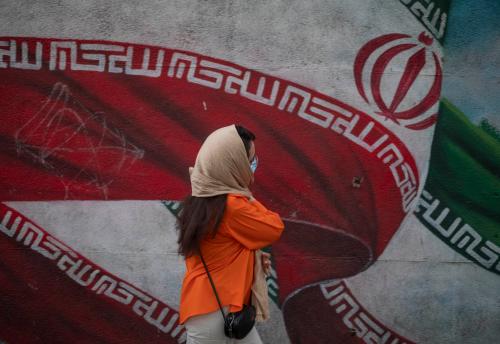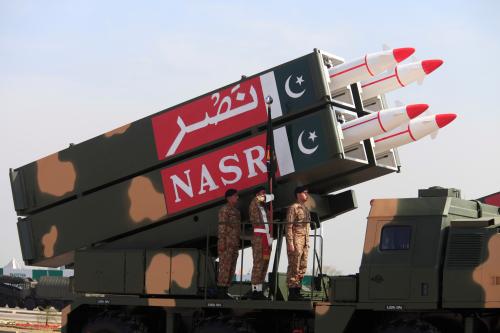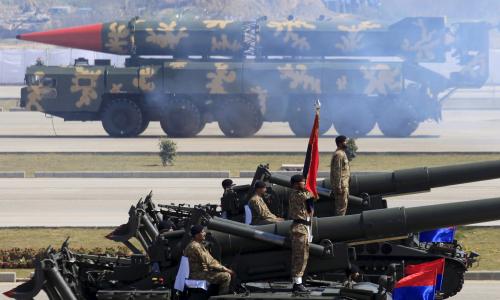Yesterday’s capture of Saddam Hussein by soldiers in the 4th Infantry Division is a major accomplishment.
Iraqis are celebrating in the streets, Americans are applauding the bravery of their soldiers, and the world is breathing easier now that the brutal dictator is under lock and key. One thing is certain – Saddam Hussein will never again be able to tyrannize the Iraqi people or threaten their neighbors
But what does the capture of the Butcher of Baghdad mean for America’s continued involvement in Iraq? Many people both within and outside the Bush administration are touting yesterday’s news as sealing America’s strategic victory. We went into Iraq to get Saddam Hussein and his weapons of mass destruction, they say. We never found the weapons, but we have found Hussein. We should now be able to start reducing our involvement in Iraq.
Domestic political considerations reinforce the temptation to believe that Hussein’s capture is the beginning of the end – that our mission in Iraq is now truly accomplished. Doubts about President George W. Bush’s handling of the situation in Iraq grew this fall as the number of American casualties mounted. Talk about finding a way to get U.S. troops out of Iraq gained a new urgency.
With Hussein now to stand trial for the atrocities he inflicted on the Iraqi people during his quarter-century of misrule, Bush’s political advisers will likely be telling the president that many voters want him to declare victory and bring the troops home.
But the job in Iraq is far from finished. As Bush warned in his address to the nation yesterday, “The capture of Saddam Hussein does not mean the end of violence in Iraq.” Indeed, the insurgency, which killed more than a hundred U.S. and other soldiers as well as countless Iraqis just last month, may intensify in the coming days and weeks. Shortly before the president spoke to the nation, a suicide bomber blew up an Iraqi police station, killing 17 Iraqi policemen. More attacks undoubtedly will come.
This should not be surprising. U.S. military commanders in Iraq have been saying for months that Hussein was not leading the insurgency. Although his capture may deal the insurgents a temporary psychological blow, it does nothing to weaken their ability to attack U.S and foreign forces as well as Iraqis cooperating in the rebuilding of Iraq.
The insurgents’ goal, moreover, remains unchanged. Iraq has long been a winner-take-all society, and insurgents aim to be the winner in post-Saddam Iraq. The only way they can achieve that goal is by making the occupation so painful that the Bush administration abandons the Iraqi people and orders a precipitous departure of American troops.
Even if the insurgency can be brought under control, the task of creating a secure, peaceful, and stable – let alone democratic – Iraq will remain the “long, hard slog” that Defense Secretary Donald Rumsfeld warned it would be back in October. The process for returning full sovereignty to the Iraqi people remains as contested as it was before Saddam Hussein was captured. And none of the difficult questions about Iraq’s political future – the sequencing of elections and constitution writing, the role of Islam, the extent of power decentralization, the nature of minority rights, to name but the most contentious – is any closer to being resolved.
The discovery of a disoriented Saddam Hussein cowering in his spider hole, then, represents a tactical rather than a strategic victory. We still need to stay the course so that our ultimate objective of building a better Iraq can be achieved.
But while yesterday’s good news does not represent an opportunity for the United States to withdraw, it does represent an opportunity to get Iraq right. It should now be possible to accelerate the transition from the American occupation to full Iraqi sovereignty. A bottom-up approach that enables the Iraqi people to play a major role in deciding their own future should produce a sovereign transitional assembly to elect an interim government and decide on a representative process for writing a new constitution.
Equally important, the Bush administration now has one final opportunity to bring the international community into the transition process. A major reason for our problems in Iraq has been the dominant American face on the occupation. More international troops, more international monies, and more international authority over the transition are necessary for success in Iraq.
While it is rare in life to get a second chance to set things right, Hussein’s capture represents precisely such an opportunity. We must resist the temptation to declare victory and go home, and instead use this momentous occasion to get Iraq right – by ending the American occupation quickly and bringing the international community in to help build a stable, secure, and representative Iraq.



Commentary
Op-edWhatever We Do, We Can’t Cut and Run
December 15, 2003